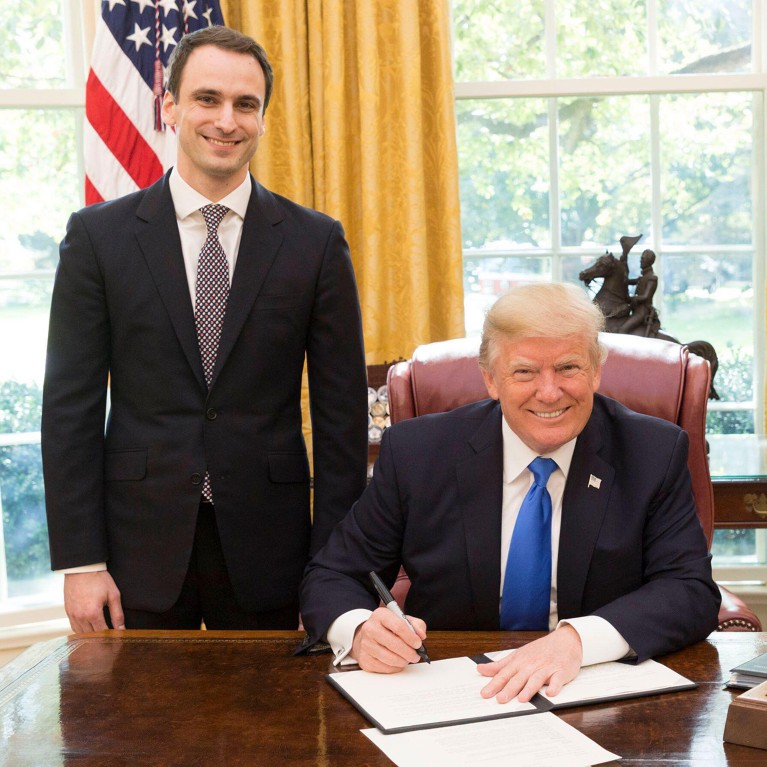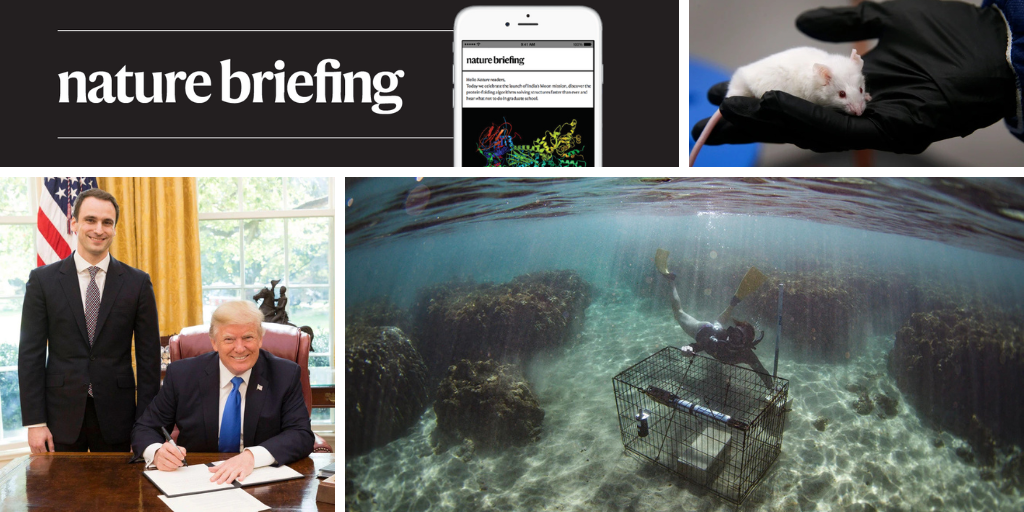
Michael Kratsios (left) was chief technology officer during the first US presidency of Donald Trump (right).Credit: PBH Images/Alamy
News
As he takes office today for the second time, US president Donald Trump has already made nominations for three key science-advisory positions, highlighting a focus on artificial intelligence (AI). Some observers are hopeful that this signals a greater interest in science and technology than during his last term. But there is a lot of uncertainty about how Trump’s advisers will influence his agenda.
• If confirmed by the US Senate, Michael Kratsios, who served as chief technology officer during Trump’s first term, will be the president’s science adviser and lead the office that coordinates science policy across the US government.
• David Sacks, a tech investor, will be the new administration’s ‘AI and crypto czar’, as well as the chair of a key council of external advisors.
• Roboticist Lynne Parker, who directed AI efforts during the first Trump administration, has been tapped for a new role assisting both Kratsios and Sacks.
News
One of Trump’s immediate actions after inauguration might be to withdraw the United States from the World Health Organization (WHO) — a process he attempted during his first presidential term. The US provides about one-fifth of WHO’s budget through around US$110 million in annual dues and millions more in voluntary donations. Leaving could embolden critics of the organization in other countries and weaken the WHO’s ability to contain disease outbreaks. The US joined the body through a 1948 act of Congress, which implies that the legislature could block a departure. Or the Trump administration might prefer to use the threat of leaving to push for reforms. “If he does a deal to make the WHO more resilient, robust, and accountable, he would be doing the US a favor and the world a favor,” says health-law scholar Lawrence Gostin.
News
The Net Zero Asset Managers Initiative, a coalition of asset managers that aimed to help achieve climate goals will “suspend activities” after the departure of BlackRock, the world’s biggest investor. Several major US and Canadian banks also left the UN-backed Net-Zero Banking Alliance in recent weeks. “The political environment has radically changed,” says business scholar Shivaram Rajgopal. “It’s like you have a bull’s-eye on your back.” While sustainable-investment advocates have called the deflating commitments “disappointing”, other observers say that the groups offered mainly empty pledges, or that the momentum towards reducing carbon emissions is strong enough to continue irrespective of these associations.
Reuters | 5 min read & The New York Times | 5 min read
Review
Cometh the hour, cometh the book — and this is just the right moment to read statistician David Spiegelhalter’s The Art of Uncertainty, writes reviewer Yongyi Min, a statistician and the chief of the SDG Monitoring Section in the United Nations Statistics Division. It’s “a book that emphasizes the importance of humility when dealing with uncertainty and predictions”, says Min. “It equips readers with the tools to think critically about risk and chance, enabling them to make better choices in their lives.”
Learn why probability probably doesn’t exist (but it is useful to act like it does) in this essay by David Spiegelhalter from December. (Nature | 11 min read)


